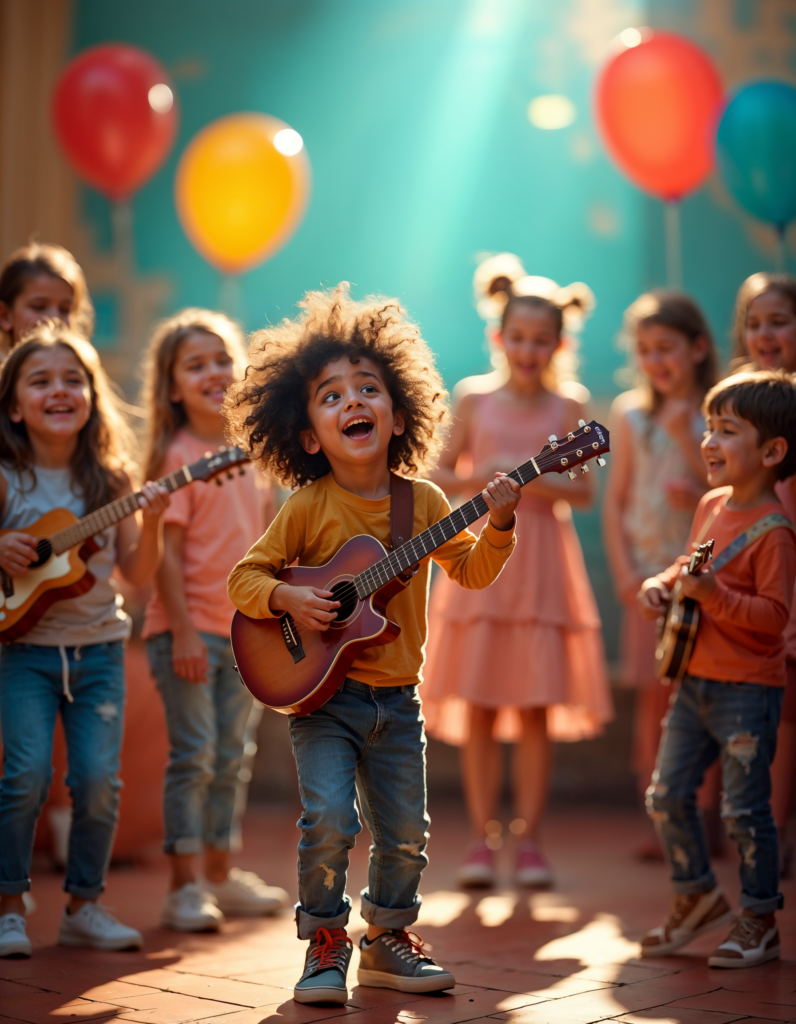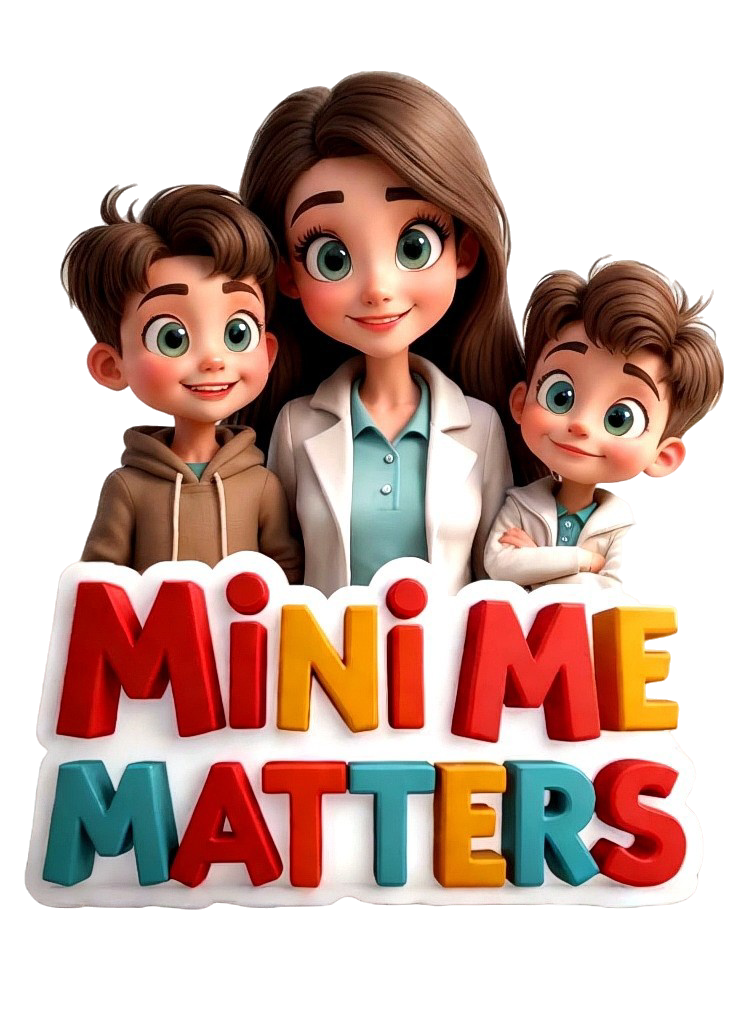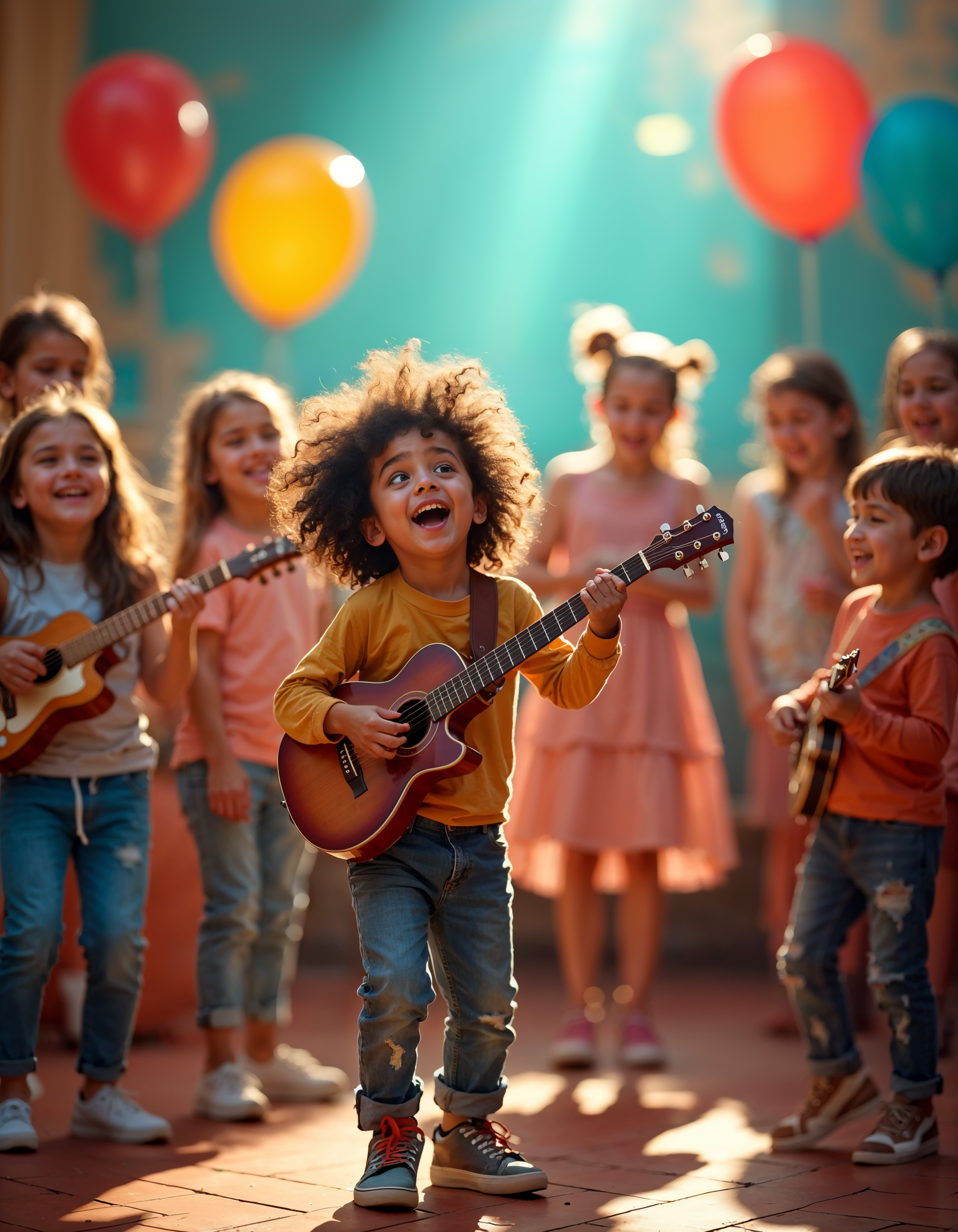Music has been called the universal language, but did you know it’s also a powerful tool for emotional and social development in Mini-MEs? Let’s dive into how the magic of music aligns with UNESCO’s report (“Learning: The Treasure Within”) on educational pillars and explore how melodies can shape the emotional well-being of our Mini-Mes.
The Four Pillars of Education and Emotional Intelligence
UNESCO’s groundbreaking report introduced four pillars for 21st-century education: learning to know, learning to do, learning to live together, and learning to be. While the first two emphasize knowledge and skills, the latter pillars delve deep into emotional intelligence. This is where social and emotional education steps in—helping Mini-Mes develop self-awareness, empathy, resilience, and interpersonal skills.
But how does music fit into this picture?
Music as an Emotional Teacher
Imagine your Mini-Me playing the tambourine in a music circle, feeling the rhythm and joy of shared creativity. Beyond being fun, this moment is a lesson in emotional perception, expression, and regulation. Research shows that music education can:
- Enhance Emotional Intelligence: Engaging with music helps Mini-Mes identify and express their emotions. Whether it’s a lively dance beat or a soothing melody, music allows kids to connect with their inner feelings and articulate them better.
- Boost Emotional Regulation: Studies reveal that Mini-Mes participating in music activities are better equipped to manage emotional states such as frustration or anxiety. That’s right—drumming it out really works!
- Foster Social and Emotional Skills: Group music activities promote empathy, cooperation, and prosocial behaviors. Singing together or playing in a band teaches kids to listen to others, take turns, and harmonize—both literally and figuratively.
The Science Behind the Sound
Music’s impact isn’t just anecdotal; it’s backed by neuroscience. Listening to or creating music activates multiple brain regions, fostering connectivity that supports emotional and cognitive growth. Music has been found to:
- Enhance creativity and deductive reasoning, nurturing problem-solving abilities essential for academic success.
- Improve linguistic skills in young Mini-Mes, even in playful settings.
- Reduce stress and anxiety, thanks to its calming effects.
Music Education: From Play to Performance
Integrating music into early education is as simple as making it playful. Regular music lessons, even in preschool, lay the foundation for a host of lifelong benefits. Picture a classroom where music is woven into the curriculum—helping Mini-Mes grasp math concepts through rhythm or learn about different cultures through folk songs.
Beyond academics, music provides a platform for values education. Singing about kindness or creating a group symphony encourages Mini-Mes to practice empathy and teamwork. And the cherry on top? It’s a proven antidote to depression, aggression, and defiant behaviors, setting a positive tone for personal and social growth.
The results suggest several beneficial effects of music on Mini-Me’s development, such as greater emotional intelligence, academic performance, and prosocial skills. It can therefore be concluded that music should be used in school settings, not only as an important subject in itself, but also as an educational tool within other subjects.
A Call to Action: Make Music Central to Education
The evidence is loud and clear: music deserves a prominent place for our Mini-Mes, as an integral part of how we teach and learn.
Whether it’s through professional music lessons or simple sing-alongs at home, every note counts in helping our Mini-Mes become harmonious members of society.
Let’s strike the right chord and let the music play!

REFERENCES
- Delors, J. La Educación encierra un tesoro. In Informe a la UNESCO de la Comisión Internacional Sobre la Educación para el Siglo XXI; Santillana-Unesco: Madrid, Spain, 1996
- Linnavalli T, Putkinen V, Lipsanen J, Huotilainen M, Tervaniemi M. Music playschool enhances children’s linguistic skills. Sci Rep. 2018 Jun 8;8(1):8767. doi: 10.1038/s41598-018-27126-5. PMID: 29884891; PMCID: PMC5993803.
- Blasco-Magraner JS, Bernabe-Valero G, Marín-Liébana P, Moret-Tatay C. Effects of the Educational Use of Music on 3- to 12-Year-Old Children’s Emotional Development: A Systematic Review. Int J Environ Res Public Health. 2021 Apr 1;18(7):3668. doi: 10.3390/ijerph18073668. PMID: 33915896; PMCID: PMC8037606.
- Blasco-Magraner, J.S.; Bernabe-Valero, G.; Marín-Liébana, P.; Moret-Tatay, C. Effects of the Educational Use of Music on 3- to 12-Year-Old Children’s Emotional Development: A Systematic Review. Int. J. Environ. Res. Public Health 2021, 18, 3668. https://doi.org/10.3390/ijerph18073668



